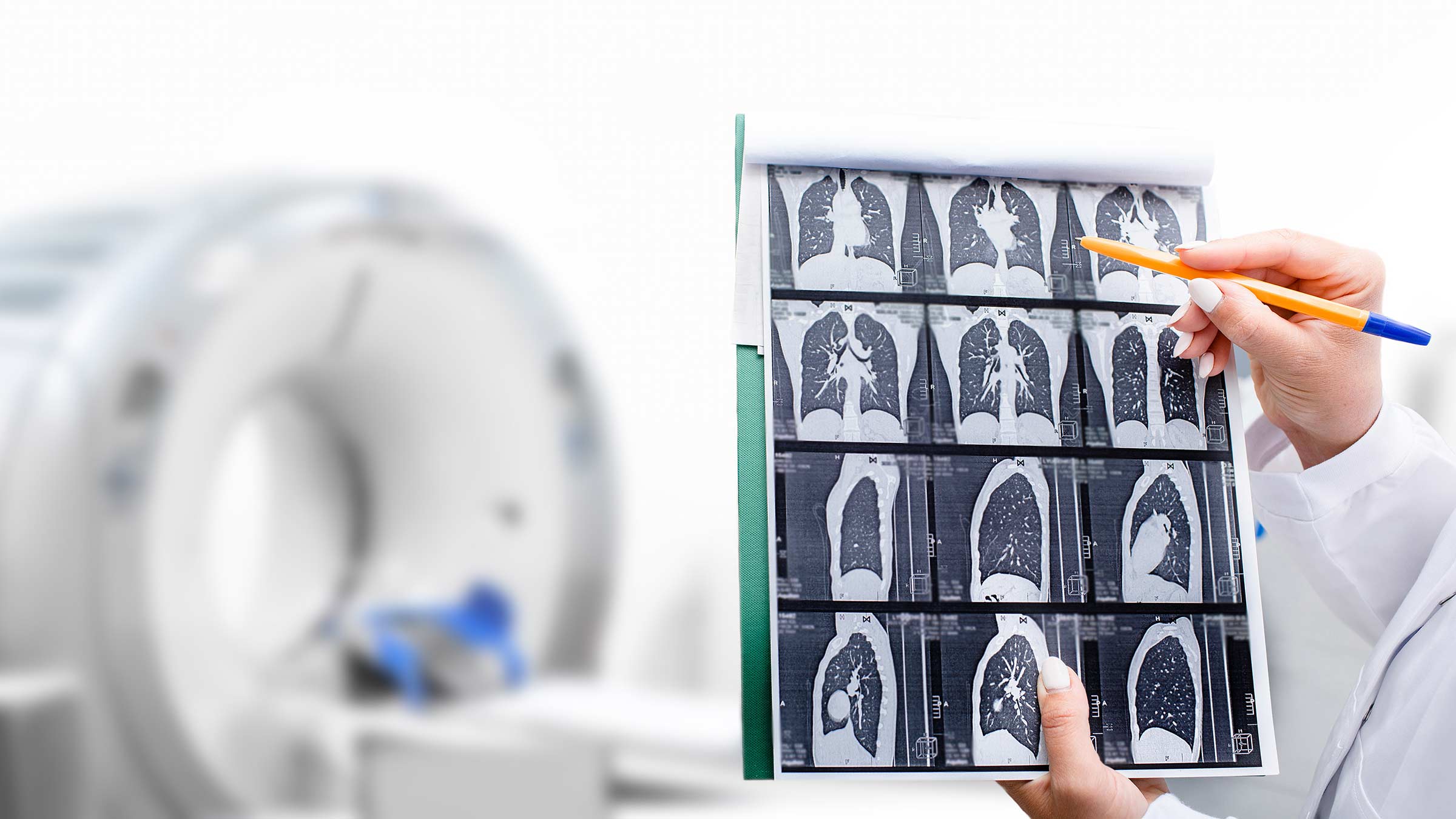
- Question Who should get screened?
-
Answer
The U.S. Preventive Task Force recently expanded its screening recommendation to include people ages 50-80 with a 20-pack-year cigarette-smoking history who currently smoke or quit within the past 15 years.
- Question What’s a pack-year?
-
Answer
One pack-year is the equivalent of smoking an average of 20 cigarettes (or one pack) per day for one year. A 20-pack-year history is the equivalent of smoking a pack of cigarettes a day for 20 years or, for example, half a pack a day for 40 years.
- Question What’s involved in a lung cancer screening?
-
Answer
Patients meet with a provider to discuss what we potentially could find. Screening is done with low-dose computerized tomography (CT), a type of scan that uses a low dose of radiation to take images of the lungs as you lie on a table. You then leave. The scan is reviewed, and you’re contacted with the results and advised of any needed follow-up care.
- Question Why is lung cancer screening important?
-
Answer
When caught early, lung cancer can be treated and potentially cured by being surgically removed. However, when found in late stages, patients have higher rates of serious illness and death, because it has already spread and can’t be removed. There are no pain receptors in lungs, so tumors can grow very large without being detected. Without screening, lung cancer is typically found in late stages, because there aren’t symptoms until the disease has spread.
- Question How often should someone be screened?
-
Answer
You should return for annual scans, just like you might continue getting annual mammograms or seeing your doctor on an annual basis. Patients often get a false sense of security if they have one negative screening, and they think they don’t have to return for another exam, or they can continue smoking. That’s not the case. Just because one screening is clear doesn’t mean you won’t develop cancer later, even if you’ve recently quit smoking.
- Question Are lung cancer screenings covered by insurance?
-
Answer
Medicare and many insurance companies cover low-dose lung-cancer screening for people included in the recommendations. It’s important to note that the recommendations don’t apply to cigar smoking or vaping, and if you’re not included, you’d have to pay out-of-pocket. However, if you have a concern, discuss it with your primary care provider, who could order a standard chest X-ray. While an X-ray is not as detailed or specific as a CT scan, it could pick up small nodules that would then prompt further screening.
- Question What are symptoms of lung cancer?
-
Answer
Patients with late-stage lung cancer might have a cough, cough up blood or have shortness of breath, especially with exercise. They may also experience pain as tumors spread.
- Question How can I make a lung cancer screening appointment?
-
Answer
You can make an appointment to get screened for lung cancer by calling the Lung Cancer Screening Clinic at 614-293-6939. Or you can contact your primary care provider, who can make a referral for lung cancer screening.





